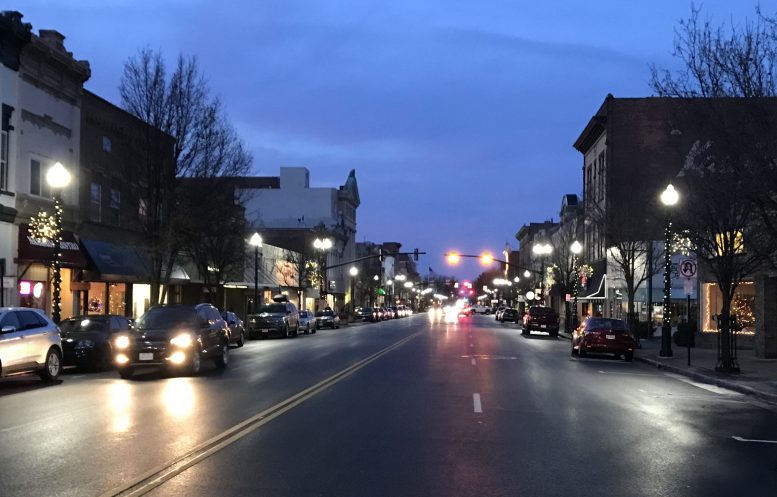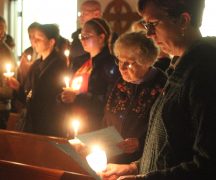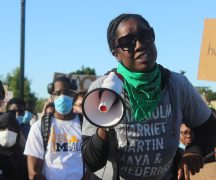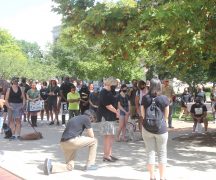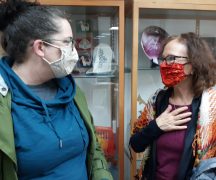By JAN LARSON McLAUGHLIN
BG Independent News
A newcomer to Not In Our Town Bowling Green was horrified to learn that some Black members of the community see Bowling Green as a “sundown town.”
“I was shocked,” the woman said Thursday about the feelings shared at her church about Black students feeling unsafe in the city after dark.
Some Midwest communities have long histories of being unwelcome and even hostile to people of color. Some had openly discriminatory laws, or turned a blind eye toward violence against people of color.
Bowling Green is not among the communities in Ohio known to be sundown towns, according to Ana Brown, a Not In Our Town member.
“There are tons of sundown towns in Ohio,” she said. “Bowling Green isn’t historically a sundown town where it’s OK for Black folks to go to work but not be there after the sun goes down.”
But Brown and other NIOT members acknowledged that the perception that Bowling Green is unwelcome toward people of color is also damaging.
A 2017 article in the Christian Science Monitor talked about the history of sundown towns in the Midwest. Black Americans were often denied housing, persecuted, or violently evicted during a period from the 1890s to the 1940s. In some cases, such as in Goshen, Indiana, town brochures boasted of “no negro population” as recently as 1955.
The article quoted historians as saying that sundown towns have left a distorted sense of racial awareness across swaths of the rural Midwest. White people do not see the lack of people of color as a problem, while African Americans say race rules their lives – shaping how they travel and where they live.
Anthony King, founder of Black Rights Advocacy Visibility and Equity, said some students of color see Bowling Green as a sundown town.
“We feel that when we walk in town at night time,” he said.
“Yeah, it exists,” said Karla Davis-McGowan, who said Black families have to instruct their children on places to avoid.
“I know where to stay away from. I know what not to do,” she said. “We’re not scared to walk the streets, but sometimes we’re scared to drive them.”
Mojabeng Kamala said Black families live a different reality in Bowling Green.
“You have to have those talks with your children,” she said. “It’s here. You have to have those conversations.”
Also at Thursday’s Not In Our Town meeting, the members discussed attacks across the country on Asian people being targeted and blamed for the coronavirus.
BG Police Sgt. Adam Skaff, who is the police division’s liaison with people of color, said he has received no reports of such violence here, but has noted it across the nation.
Emily Dunipace, co-chair of NIOT, said some Asian students at BGSU have set up an emergency call system if they feel threatened in the community.
“My heart breaks to hear that BGSU students had created networks,” in preparation for possible violence, Dunipace said.
In other business, it was reported that Not In Our Town will be hosting community conversations about the “Rise of Extremism,” with the first workshop being March 30, at 7 p.m. on Zoom.
The second in the series, on April 28, at 7 p.m., will be directed toward parents and caregivers and focuses on how youth are recruited and groomed by extremist groups. And the third will be in May, and will be aimed at helping young people realize the risks of being targeted on social media.
More information will be coming on the series.

